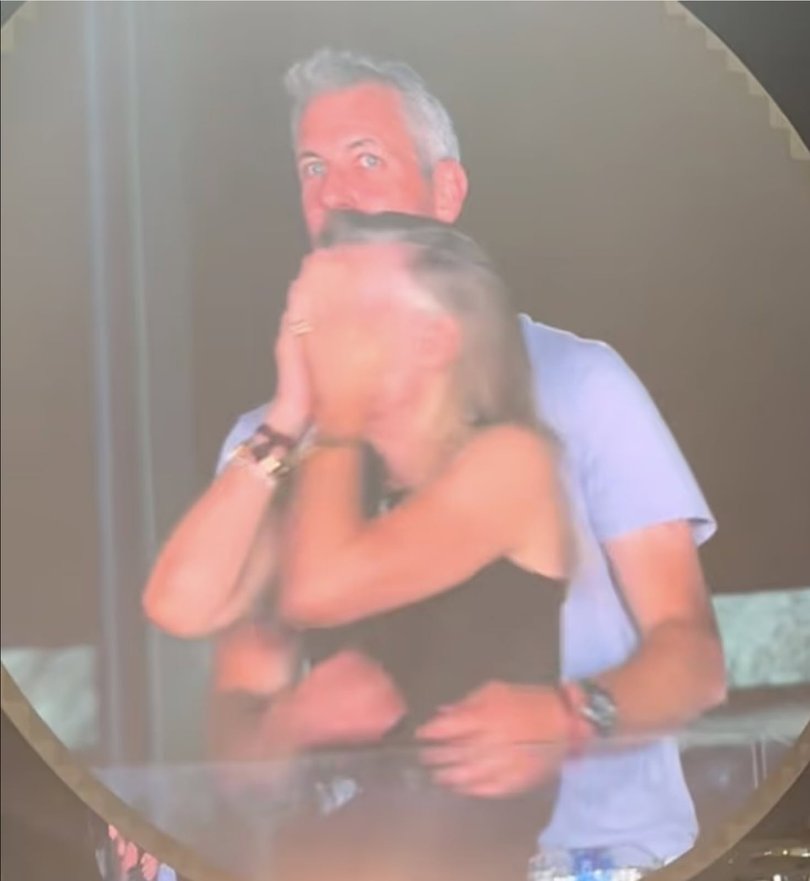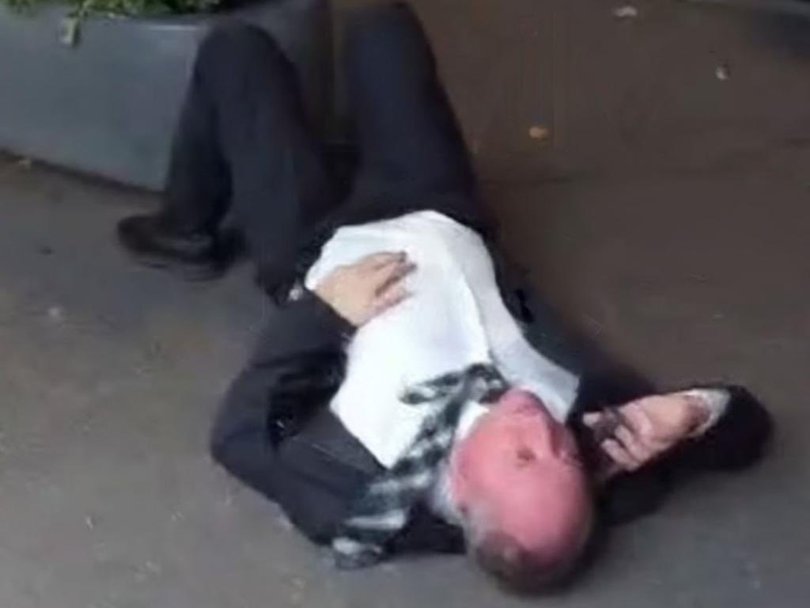JENI O’DOWD: Astronomer CEO public shaming became part of a terrifying blood sport
JENI O’DOWD: Scandal makes for good memes, but for the targets of the digital mob, the consequences are life shattering.
At first, it was hilarious. The Coldplay scandal dropped like confetti across the internet, and within hours, social media turned into a comedy writer’s room.
Memes. TikToks. People re-enacted the infamous kiss-cam moment with their spouses, their mates and even their dogs.
At a Phillies game in the US, the mascots got in on the joke, hamming it up on the stadium kiss-cam in a send-up of the now-infamous moment. It was silly. And it was very, very funny.
Sign up to The Nightly's newsletters.
Get the first look at the digital newspaper, curated daily stories and breaking headlines delivered to your inbox.
By continuing you agree to our Terms and Privacy Policy.As my colleague Aaron Patrick said earlier this week, the incident struck a nerve because it was real: awkward, unfiltered and instantly recognisable. But while the memes were harmless, the consequences were anything but.
Within hours, Andy Byron, CEO of US data company Astronomer, and Kristin Cabot, the firm’s human resources boss, had been publicly identified. Both married. Both had kids. After an emergency board meeting, Byron later resigned as CEO.
Their lives (and let’s not forget their spouses and kids) were shredded, all because of one kiss-cam moment.
Affairs aren’t new. Public shame isn’t new. However, what is new and genuinely terrifying is how quickly it all happened. One clip. One upload. Hours later, they were done.

We used to fear Big Brother. But George Orwell was wrong. It’s not Big Brother watching us, it’s all of us. Recording, uploading and judging. In real time.
We’ve seen it happen here, too. Just ask Wayne Carey.
The former AFL star was recently filmed, without his knowledge, at a Melbourne bar with Kate Aston, a female marketing executive. Both Carey and Aston strenuously denied that anything inappropriate had happened.
They said it was a private moment, twisted into something it wasn’t and that the real issue was being filmed without consent.
The footage spread rapidly through Melbourne’s gossip chains and WhatsApp groups before becoming national headlines.
“You’ve got two vile, disturbing, probably pissed women who want to do this to another woman,” Carey later said in an interview on the You Can’t Be Serious podcast.
“That’s all they were doing, they were slut‑shaming another woman.”
Aston called the filming “a deliberate act of bullying”. She’s not wrong. It wasn’t journalism. It wasn’t in the public interest. It was a take-down, filmed, wrongly captioned and shared for the blood sport of it all.
Once upon a time, if you kissed the wrong person or made a drunken mistake, the only people who knew were the ones in the room. Maybe someone gossiped, maybe they didn’t. But you always had the chance to move on.
Even our prime ministers got a pass. Remember that 1975 shot of Bob Hawke in his swimmers at a conference in Terrigal, chatting to a woman in a bikini? It made headlines, but Hawke brushed it off and life went on.
Today that image would be uploaded in real time, dissected by the minute and weaponised into 10 different outrage cycles.
Last year, former deputy prime minister Barnaby Joyce was filmed lying on a footpath in Canberra, drunk and on the phone.
The video was captured and gained national attention. Joyce described it as a “big mistake” and admitted he’d mixed medication and alcohol, saying: “I came back, sat on a planter box and I was videotaped.”

Monica Lewinsky and Bill Clinton were another infamous public scandal. In 1998, she was humiliated worldwide before social media existed. Imagine if it had happened today.
The Coldplay couple.
Wayne Carey.
The teen who made one stupid joke.
The girl filmed throwing up after her school formal.
The 14-year-old who posted a selfie someone else didn’t like.
One unspectacular moment — awkward, messy, or badly timed — caught on camera and blown out of proportion before they even knew it existed.
My friends and I say it all the time — thank God there weren’t cameras around when we were young. We made some terrible choices (I cringe when I think of mine), but at least no one was recording us, uploading it and turning it into a national sport.
Of course, not all filming is bad. Sometimes, it’s the only thing that brings justice. Videos of police brutality, assaults and public abuse have held people accountable when the system failed to. Filming has exposed corruption, protected victims, and in some cases, caught criminals in the act.
In the case of the Coldplay couple, the story snowballed because of how they reacted. The ducking and face-covering all screamed guilty.
Here’s a tip: if you’re having an affair, maybe don’t go to a concert with 60,000 people — half of them holding cameras — and behave like you’re in a rom-com.
Even more so if you are the boss having an affair with the head of HR, a department charged with enforcing codes of conduct, not breaching them.
None of this is about protecting cheaters. It’s about asking whether one bad decision should mean the end of someone’s career, family or future.
Because if we keep handing out digital death sentences for every public misstep, eventually we’ll all be on trial.
